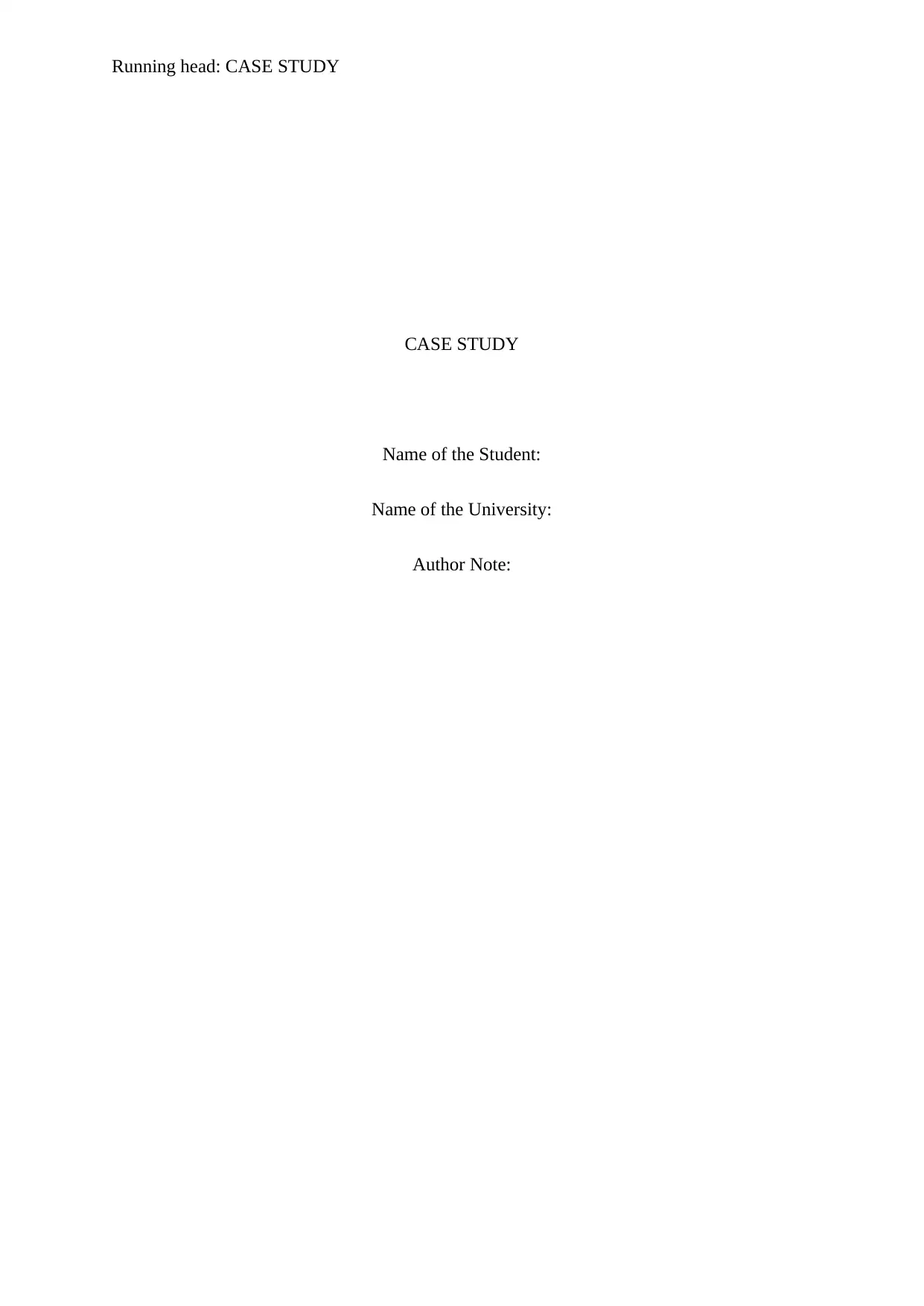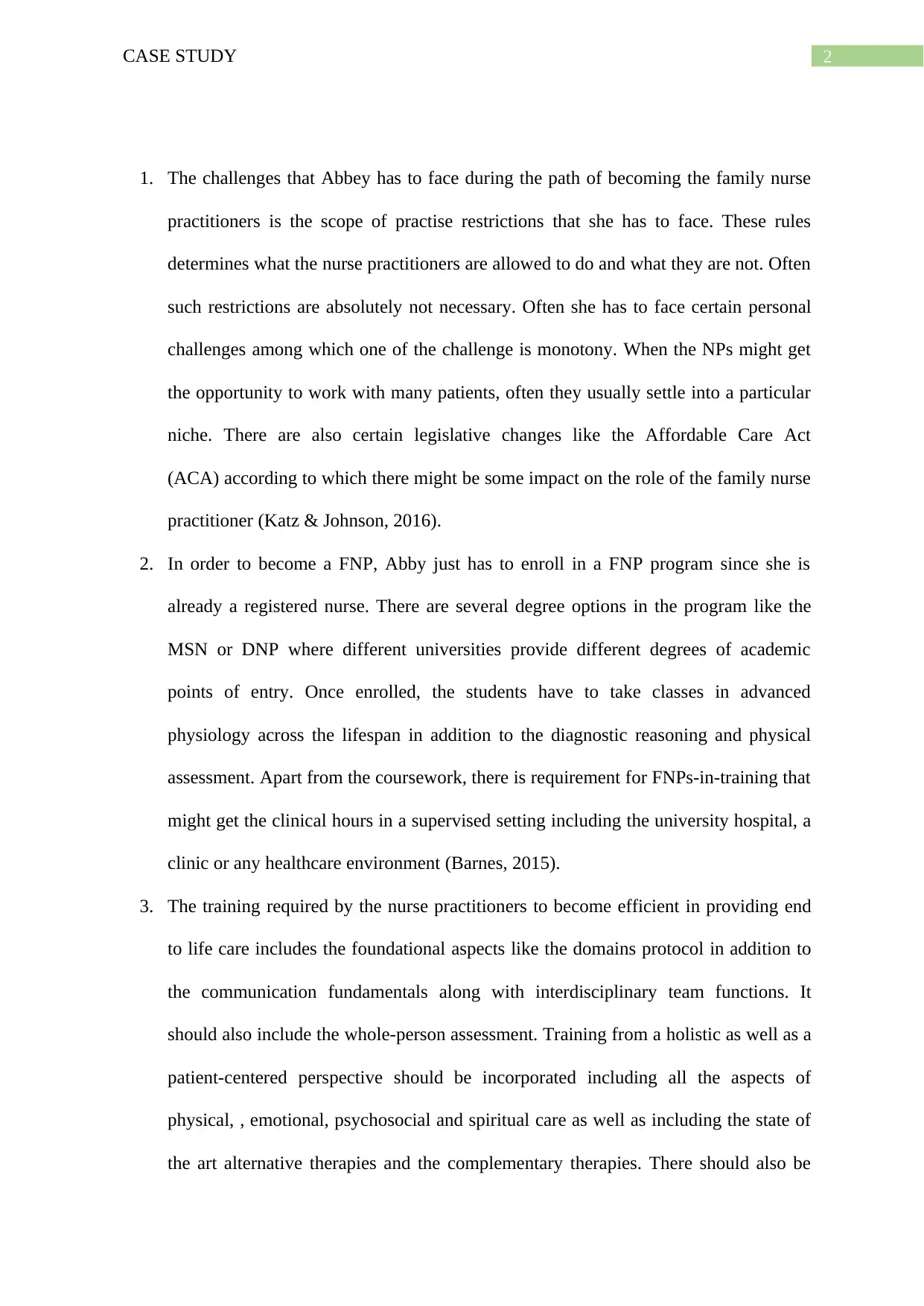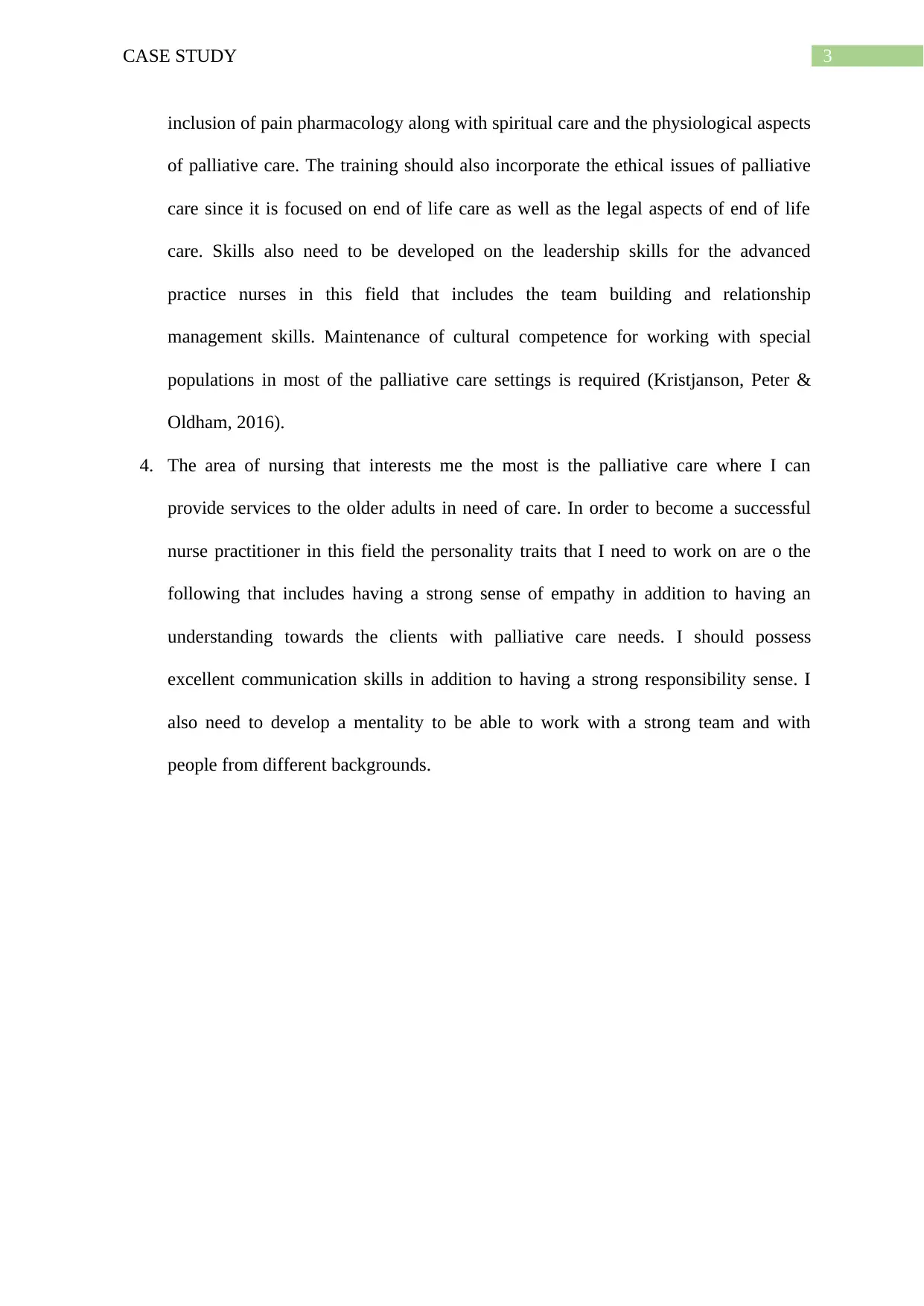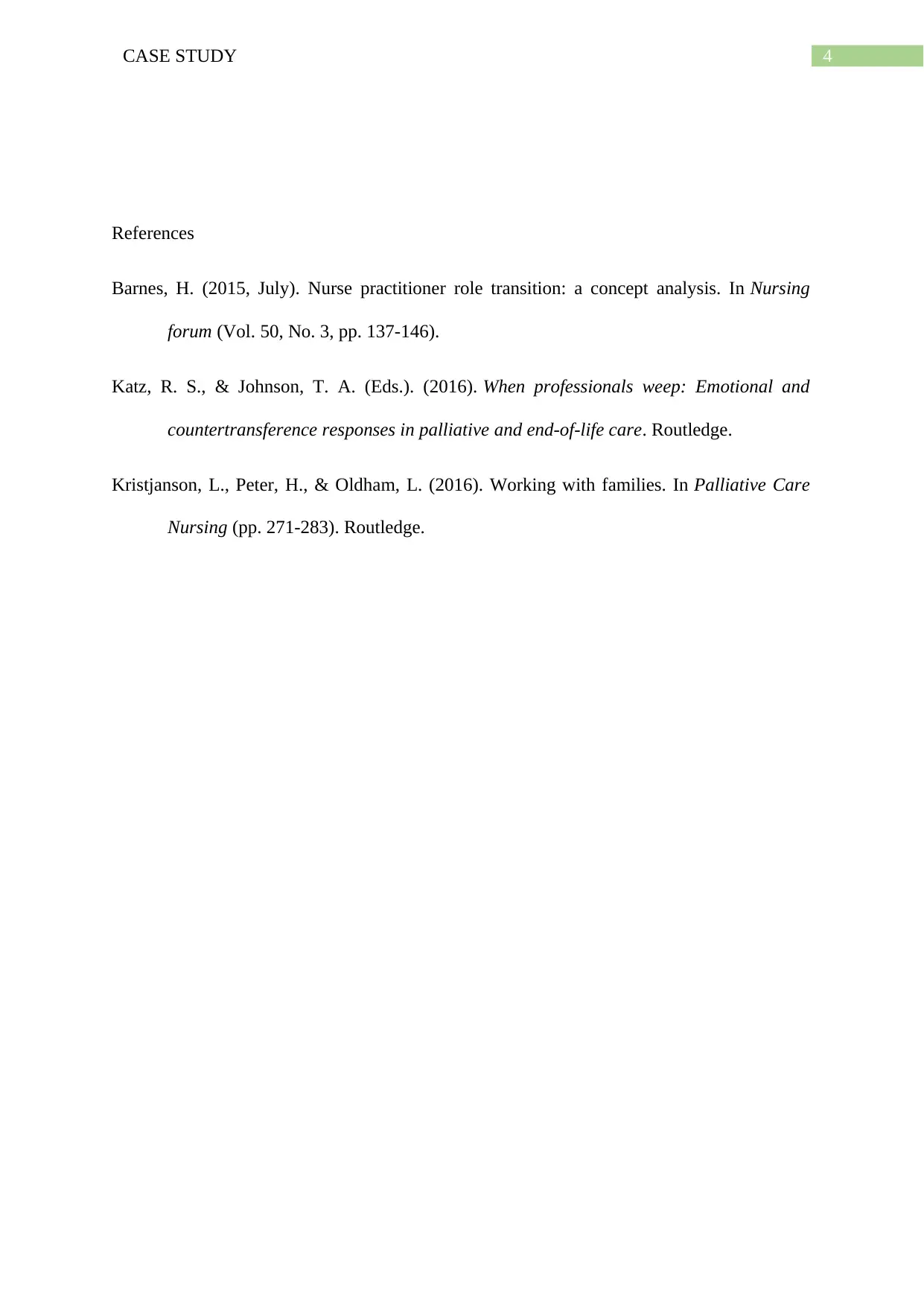Case Study: FNP Challenges, Training & End-of-Life Care Competencies
VerifiedAdded on 2023/06/03
|4
|687
|378
Case Study
AI Summary
This case study delves into the challenges faced by family nurse practitioners (FNPs), including scope of practice restrictions, monotony, and legislative changes like the Affordable Care Act. It outlines the necessary training to become an FNP, emphasizing enrollment in an FNP program (MSN or DNP), coursework in advanced physiology, diagnostic reasoning, and physical assessment, along with supervised clinical hours. The study further highlights the training required for providing effective end-of-life care, encompassing communication, interdisciplinary teamwork, holistic patient assessment, pain pharmacology, spiritual care, ethical and legal considerations, and leadership skills. It also touches upon the importance of empathy, communication skills, responsibility, and teamwork for nurses interested in palliative care. Desklib provides a platform for students to access similar case studies and study resources.
1 out of 4











![[object Object]](/_next/static/media/star-bottom.7253800d.svg)